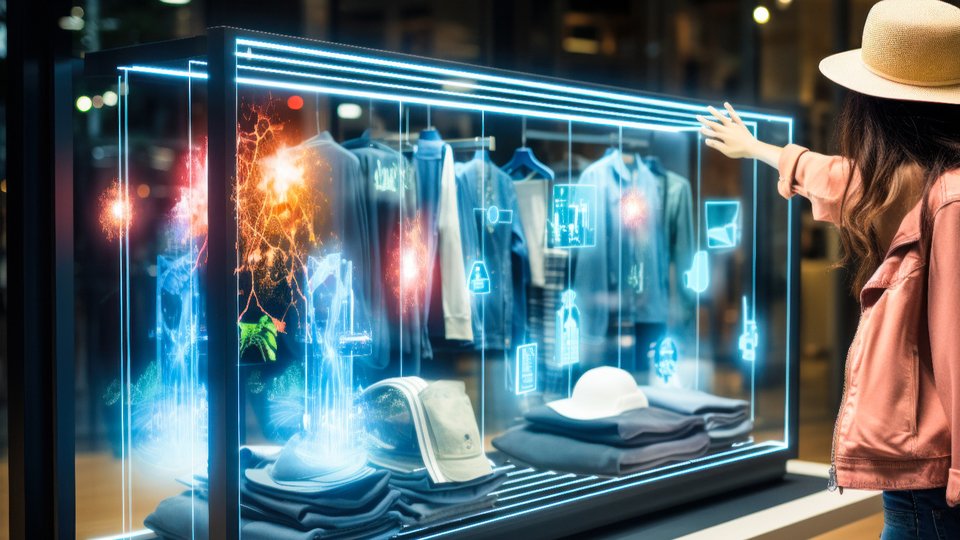Omnichannel
Preparing for the ‘Zero Consumer’ this holiday season: What retailers need to know about the ‘Retail Reset’
With the holiday season upon us, businesses must brace themselves for a new type of customer—the "Zero Consumer." This is a consumer who demands a zero-friction, highly personalized, and technologically integrated shopping experience.

December 11, 2023 by Cynthia Sener — President, Go to Market, Chatmeter
The retail landscape is undergoing a seismic shift, propelled by technological advancements, changing consumer behaviors, and the continuous challenges of global events. With the holiday season upon us, businesses must brace themselves for a new type of customer—the "Zero Consumer." This term encapsulates a consumer who demands a zero-friction, highly personalized, and technologically integrated shopping experience. To thrive in this rapidly changing retail environment, companies need to understand and adapt to the demands of this so-called "Zero Consumer."
Embracing seamless integration
Many shoppers start their searches online. In fact, 80% of holiday shoppers report that they researched or browsed before making a purchase. More and more consumers are loading their virtual carts with items while perusing other websites for better prices or personalized shopping experiences.
However, this is wider than e-commerce. The "Zero Consumer" seeks a means to purchase that seamlessly integrates physical and digital channels. Seventy percent of millennials and Gen Zers—say they rely on social media, celebrities, and articles or blogs for purchase inspiration. Companies must invest in omnichannel strategies that allow customers to transition effortlessly between online and offline platforms. From browsing products on a mobile app to completing the purchase in-store, businesses must create a unified and consistent experience across all touchpoints.
AI-powered solutions are assisting in removing barriers in a number of ways — from virtual assistants, chatbots, and voice search, customers can more easily navigate the holiday shopping process. Organizations not investing in these technologies could soon be left behind as the 'Zero Consumer' requires as frictionless of an experience as possible.
Personalization is the new norm
Personalization is no longer a luxury but an expectation for the "Zero Consumer." 71% of consumers expect companies to deliver personalized interactions, and 76% get frustrated when this doesn't happen. Evolution in AI assists customers in streamlining the customer journey and helping multi-location businesses understand their customers. Companies can now analyze vast amounts of data to understand individual preferences and provide tailored recommendations.
Sentiment analysis tools can filter through loads of online reviews, social media posts, and survey feedback to help businesses truly understand the voice of the customer. Whether it be personalized promotions or curated product suggestions, companies must leverage data analytics and artificial intelligence to cater to each customer's unique needs and preferences.
Revolutionizing the shopping journey
The traditional consumer journey has advanced into a dynamic and non-linear experience. The "Zero Consumer" values convenience and expects businesses to meet them wherever they are in their decision-making process. Due to this, brands must invest in technologies such as chatbots, virtual assistants, and voice-activated devices to engage with customers in real-time and offer assistance throughout their entire journey.
For the "Zero Consumer," the shopping experience is just as important as the product itself. Immersive and interactive experiences, both online and offline, can capture the attention and loyalty of this discerning audience. TikTok is one example of a hotspot for companies to create engaging product demonstrations, allowing customers to hear from influencers or celebrities they trust and follow. Creating virtual spaces for customers to "try on" items a business sells can give a company a leg up on the competition.
Building trust through transparency
Consumers' expectations of brands are also rising. Trust is a currency that the "Zero Consumer" values deeply. They expect brands to listen and quickly engage with their feedback, are much less willing to wait for products and look for brands that prioritize values like sustainability. Companies must prioritize transparency in their operations, from sourcing and production to pricing and customer service. Clear communication about product origins, sustainability efforts, and ethical business practices can build trust and loyalty among consumers who are increasingly conscious of their purchases' social and environmental impact.
During the holidays, brands need to engage with customers who take the time to leave feedback by providing personalized and authentic responses. When a consumer takes time to leave a comment on their experience, whether that experience was positive or negative, responding thoughtfully and moving beyond the standard "thanks for your feedback," will help brands stand out.
Agility and adaptability
According to a recent survey, 90% of consumers believe technology will improve their overall shopping experience. The "Zero Consumer" is quick to adopt new technologies and expects businesses to keep pace. Companies must be agile and adaptable during the holidays and beyond to stay ahead. Embracing innovation, staying informed about market trends, diving into the voice of the customer, and being willing to adjust strategies based on consumer feedback are essential for survival in this dynamic environment.
If there is one takeaway for businesses this year, it's to not underestimate the value of AI-powered solutions. The ROI for AI technologies cannot be emphasized enough. It's crucial that brands recognize the emergence of the "Zero Consumer" and adapt their strategies accordingly. Utilizing customer feedback to understand and cater to the growing needs of the "Zero Consumer," businesses can position themselves for success in an increasingly competitive and transformative marketplace.
About Cynthia Sener
Cynthia brings nearly 25 years of experience to Chatmeter with a background in local SEO, product development, strategic marketing, revenue generation, and sales. Cynthia’s customer-centric approach to driving business value, growth, and revenue will support Chatmeter’s expansion into new verticals. She joined Chatmeter from a previous role as VP of operations and product at Rio SEO and has held leadership roles at data-centric organizations such as Acxiom, Hanley Wood, and Constellation Software. Cynthia is an active Forbes Council contributing author.
 ChatGPT
ChatGPT Grok
Grok Perplexity
Perplexity Claude
Claude




